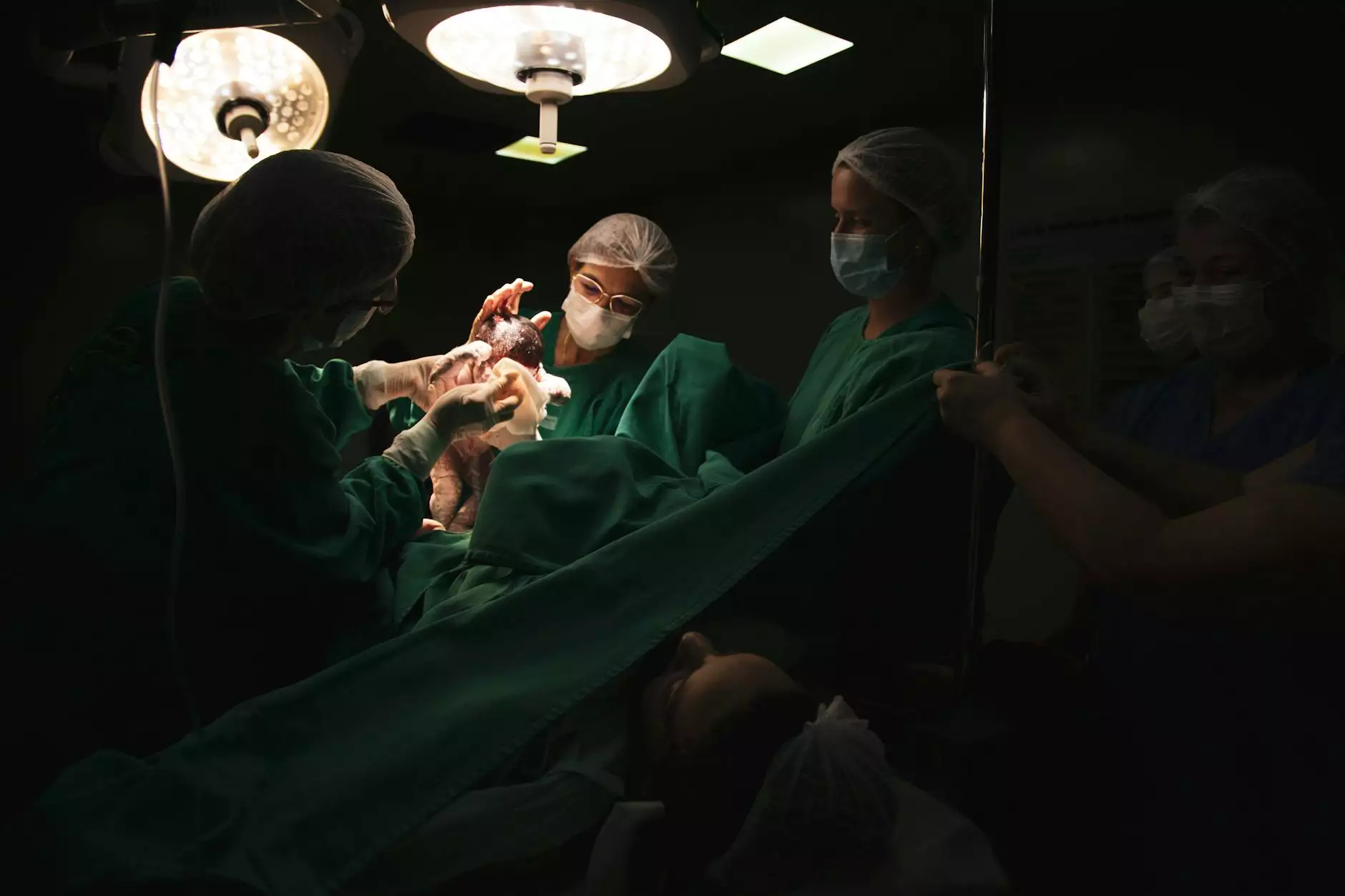The Vital Role of a Thoracic Surgeon in Health and Medicine

Thoracic surgeons play a crucial role in the realm of health and medical care, focusing on the surgical treatment of organs within the thorax (chest) including the heart, lungs, and other vital structures. Their expertise is fundamentally important for patient recovery, especially in cases requiring considerable surgical intervention. In this article, we will delve into the significance of thoracic surgery, its implications in physical therapy, and how it relates to sports medicine.
What is Thoracic Surgery?
Thoracic surgery involves operative procedures performed on organs located in the thoracic cavity. Conditions treated by thoracic surgeons may range from lung cancer and emphysema to esophageal disorders and congenital heart defects. The aim of these surgeries is not only to treat diseases but also to improve patients' quality of life, making the role of a thoracic surgeon exceptionally vital.
Key Responsibilities of a Thoracic Surgeon
Thoracic surgeons are skilled professionals trained to perform complex surgeries that require a high level of precision and expertise. Their responsibilities typically include:
- Conducting pre-operative assessments to evaluate patients' conditions.
- Performing surgical procedures on thoracic organs.
- Managing post-operative care to ensure proper recovery.
- Collaborating with a multidisciplinary team including physicians, anesthesiologists, and nurses.
- Utilizing advanced technology and techniques, including minimally invasive surgeries.
Understanding Types of Thoracic Surgery
There are several types of surgeries that a thoracic surgeon may perform. Some of the primary types include:
1. Lung Surgery
This may involve procedures such as lobectomies (removal of a lobe of the lung), pneumonectomy (removal of an entire lung), and wedge resection, which are often performed to treat lung cancer, infections, or chronic lung diseases.
2. Heart Surgery
Thoracic surgeons often perform surgeries to correct structural problems with the heart, including coronary artery bypass grafting (CABG) and valve repair or replacement.
3. Esophageal Surgery
Surgeries like esophagectomy (removal of the esophagus) or repair of esophageal conditions are crucial for patients with severe diseases such as cancer or esophageal strictures.
The Impact of Physical Therapy Post-Surgery
Post-operative recovery is essential for thoracic surgery patients. A comprehensive physical therapy program can significantly enhance recovery outcomes by:
- Improving respiratory function through targeted exercises.
- Reducing pain and discomfort, allowing for a better quality of life.
- Strengthening muscles weakened due to surgery or prolonged inactivity.
- Restoring mobility and flexibility to ensure patients can perform daily activities.
Physical therapists work closely with thoracic surgeons to develop individualized recovery plans, which are crucial for successful rehabilitation.
Thoracic Surgery in Sports Medicine
In sports medicine, the role of a thoracic surgeon can be particularly significant. Athletes may face unique health challenges, including injuries that require surgical intervention. The collaboration between thoracic surgeons and sports medicine professionals ensures that athletes receive comprehensive care that enhances their performance and overall well-being.
Dealing with Athletic Injuries
Some athletes may experience injuries affecting the thoracic region, such as rib fractures, lung contusions, or stress fractures. These injuries can severely impact an athlete's performance and may necessitate surgical intervention. A thoracic surgeon addresses these issues through precise evaluation and surgical expertise, often allowing athletes to return to their respective sports with minimized recovery time.
The Importance of Multidisciplinary Collaboration
A successful recovery plan for athletes often involves a multidisciplinary approach. This approach includes:
- Sports physicians for initial assessments and diagnosis.
- Physical therapists to aid recovery through rehabilitation exercises.
- Nutritionists to ensure proper diet and recovery.
- Psychologists to help with mental resilience.
This collaboration ensures a holistic approach to recovery, empowering athletes to achieve optimal health and performance levels.
The Future of Thoracic Surgery
As medical science and technology advance, the field of thoracic surgery is evolving. New techniques such as robotic surgery are enhancing surgical precision and minimizing invasiveness, leading to improved patient outcomes. Additionally, research into new treatments and technologies is paving the way for innovative therapies that reduce recovery time and improve the quality of life for patients.
Patient Education and Awareness
In today’s health landscape, patient education is paramount. Understanding thoracic conditions, procedures, and recovery processes empower patients to make informed decisions about their health care. Thoracic surgeons and their teams play a critical role in providing this education through:
- Informative sessions about surgical procedures and expectations.
- Q&A Forums where patients can express concerns and receive expert guidance.
- Educational materials that detail the thoracic surgery journey.
Conclusion
In summary, the role of a thoracic surgeon is integral to patient health and recovery. Their expertise in surgical interventions, combined with a robust understanding of post-operative care, not only saves lives but also enhances the quality of life for patients. By collaborating with other health professionals, including those in physical therapy and sports medicine, thoracic surgeons ensure a comprehensive approach to patient wellness. As we move forward, the ongoing advancements in technology and treatment options continue to redefine thoracic surgery, promising even better outcomes for patients in the future.



